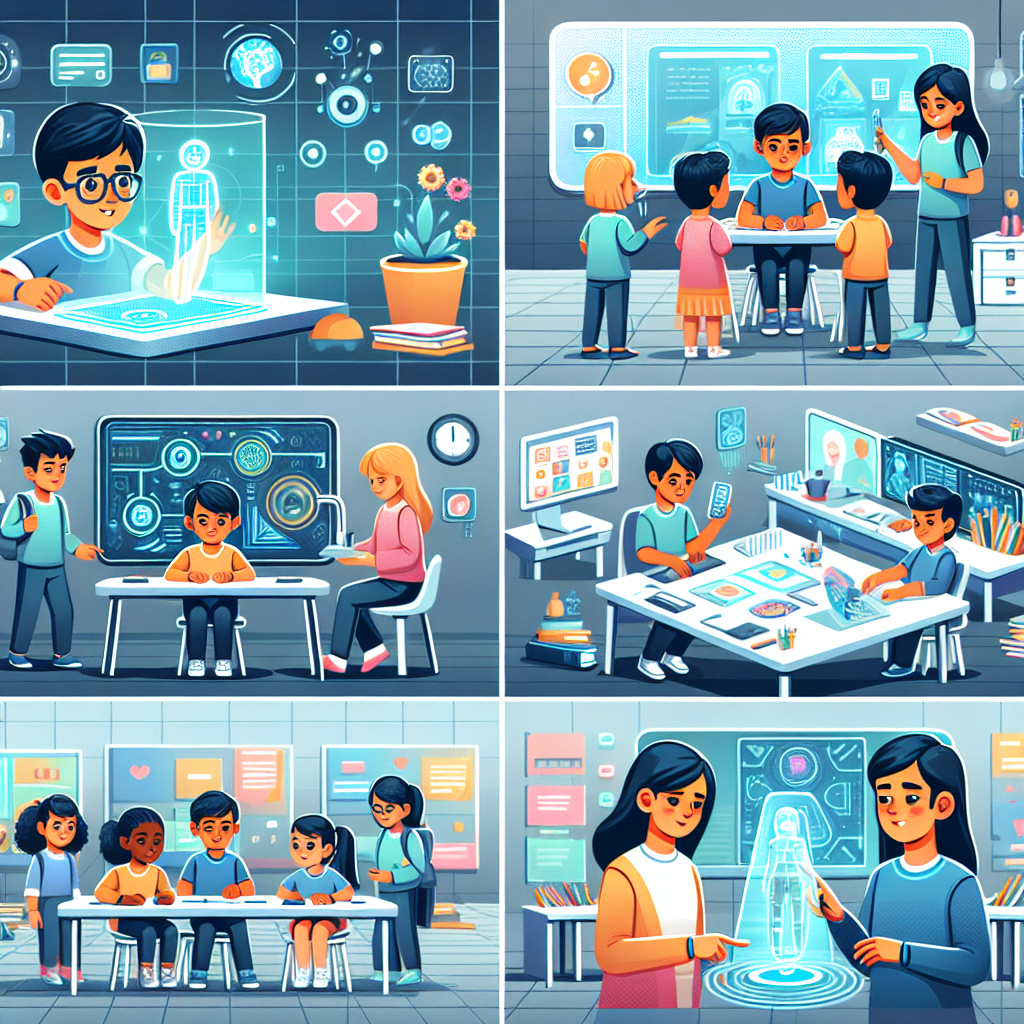Artificial General Intelligence (AGI) is a rapidly advancing field that has the potential to revolutionize education by personalizing learning for students. AGI refers to machines that can perform any intellectual task that a human can do, and potentially even surpass human intelligence in the future. In the context of education, AGI can be used to create personalized learning experiences that cater to the individual needs and abilities of each student.
One of the key benefits of using AGI in education is the ability to provide personalized learning experiences for students. Traditional education systems are often one-size-fits-all, with all students following the same curriculum and pace of learning. This can be challenging for students who learn at different speeds or have different learning styles. AGI can help address this issue by analyzing each student’s learning preferences, strengths, and weaknesses, and tailoring the learning experience to meet their individual needs.
AGI can also provide immediate feedback to students, allowing them to track their progress in real time and make adjustments as needed. This can help students stay engaged and motivated, as they can see the direct impact of their efforts on their learning outcomes. Additionally, AGI can identify areas where students are struggling and provide additional support or resources to help them overcome these challenges.
Another benefit of using AGI in education is the ability to create interactive and engaging learning experiences for students. AGI can be used to develop virtual tutors or learning assistants that can interact with students in a natural and conversational manner. These virtual tutors can answer questions, provide explanations, and offer guidance to students, making learning more interactive and enjoyable.
AGI can also be used to create personalized learning pathways for students, based on their interests, goals, and abilities. This can help students stay motivated and engaged in their learning, as they can pursue topics that are personally relevant to them. AGI can also recommend additional resources or activities that students may find interesting or beneficial, helping them expand their knowledge and skills in a self-directed manner.
In addition to personalizing learning for students, AGI can also help educators improve their teaching practices. By analyzing student data and performance metrics, AGI can provide insights into how students learn best and which teaching strategies are most effective. This can help educators tailor their instruction to meet the needs of their students more effectively, leading to better learning outcomes for all.
Despite the many benefits of using AGI in education, there are also some concerns and challenges that need to be addressed. One of the main concerns is the potential for bias in AI algorithms, which can lead to unfair treatment or discrimination against certain groups of students. To address this issue, developers of AGI systems need to ensure that their algorithms are trained on diverse and representative data sets, and that they are regularly monitored and audited for bias.
Another challenge is the need for educators to be trained in how to effectively integrate AGI into their teaching practices. Many educators may be unfamiliar with AGI technology and how to use it in the classroom, so training and professional development opportunities will be essential to ensure that AGI is used effectively to support student learning.
Overall, AGI has the potential to transform education by personalizing learning for students and improving teaching practices. By harnessing the power of AI technology, educators can create more engaging and effective learning experiences that meet the individual needs of each student.
FAQs:
Q: How is AGI different from narrow AI?
A: AGI refers to machines that can perform any intellectual task that a human can do, while narrow AI is designed for specific tasks or domains. AGI has the potential to surpass human intelligence in the future, while narrow AI is limited to the tasks it was designed for.
Q: How can AGI personalize learning for students?
A: AGI can analyze student data and performance metrics to identify each student’s learning preferences, strengths, and weaknesses, and tailor the learning experience to meet their individual needs. AGI can also provide immediate feedback to students and create personalized learning pathways based on their interests and goals.
Q: What are some potential benefits of using AGI in education?
A: Some potential benefits of using AGI in education include personalized learning experiences for students, immediate feedback and support, interactive and engaging learning experiences, and improved teaching practices for educators.
Q: What are some concerns and challenges of using AGI in education?
A: Some concerns and challenges of using AGI in education include potential bias in AI algorithms, the need for educators to be trained in how to effectively integrate AGI into their teaching practices, and the ethical implications of using AI technology in education.

